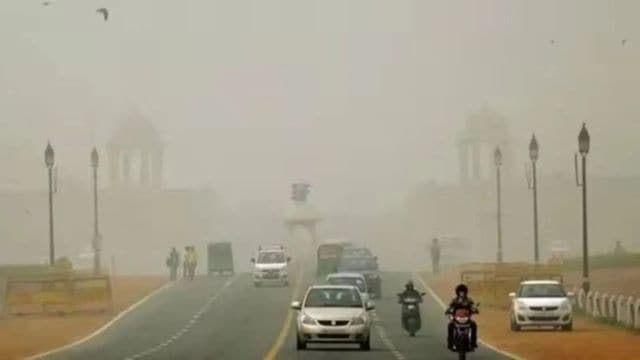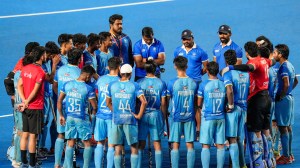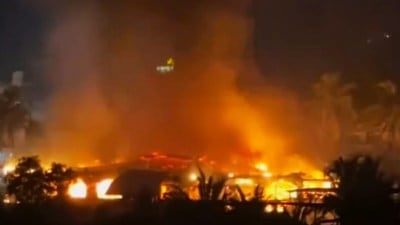Tweaked lesson plans, limited outdoor activities, advisory on wearing masks, orientation for parents, and training for teachers — this is what pollution means for schools in the national capital region. But there is a refrain about living and schooling in the city: “This is just the management of the issue, not a solution. The solution should come from the government.”
With GRAP Stage-III kicking in on Friday, and classes for students up to grade V moving online, The Indian Express speaks with principals and educators of private schools in Delhi and Gurgaon.

Ameeta Mulla Wattal, chairperson of DLF Foundation Schools
We (educators) have known the issue of pollution since 2015. I was then the principal at Springdales. So, it is not new… and with the knee-jerk reactions every year, I don’t expect the issue to stop at least in the next five years. The governments still do not really understand the immediacy of the problem. India does not live in air-purified classrooms. India lives in small towns; it lives in clusters. We cannot expect government schools to come up with the same responses as private ones.
Alka Kapur, principal, Modern Public School Shalimar Bagh
There is a clear lack of public awareness and the issue is not taken seriously even by senior students. Apart from the visible health concerns, there is a serious danger of health issues that are life long. Even with an over-polluted capital, people are ignorant in the name of community activities…I am very surprised to see schoolchildren going on processions. We are talking about the closure of schools, but firecrackers are being burst openly. The government should take proactive measures, without which this will continue to spiral out of control year after year.
Last night, I was feeling choked, my eyes were burning. I could not sleep. My children are abroad because Delhi has become unlivable…With schools closed due to pollution, education has been hit as remaining offline days are so low. We have made a mockery out of education.
Pallavi Sharma, principal, Mamta Modern School
It is a very sorry state. Children are the future but what are we giving them? It has become a joke. There are summer holidays, winter holidays, autumn break, Dussehra break, and now we have pollution break. We need to ensure that learning doesn’t stop. With children below five, parents need to sit with them while for seniors, this being the time for board exam preparations, teachers cannot afford a closure. However, like every year, these are also expected to go online.
Y P Purang, chairperson, Delhi International School Chairperson
Even if the classes are being switched to online, children still will remain outside. These (government) actions are just eyewash. The children tend to ultimately be outside playing…There needs to be a permanent solution against pollution. Where are the dust-mitigation measures taking place? I don’t see anything concrete… The biggest downside of online classes is the social impact it has on children. After Covid-19, it took time for the children to go back to being socially adaptable. A failure to combat the crisis is impacting their future.
Monika Mehta, principal, Ryan International School
Story continues below this ad
We are closely monitoring the air quality every morning. We have initiated workshops regarding health hazards and the preparation to combat the issue. We are imparting knowledge by tying up with experts and hospitals as well. One of the ways to ensure minimal exposure to outdoors is through ensuring co-curricular activities are conducted in our amphitheater. We have learning schools also called parallel schools so the children are not cut off from physical education activities.
Sumana Dutta Sarkar, principal, GD Goenka High School
Pollution and dipping levels of air quality is an annual problem that suspension of classes cannot be a solution. This is just the management of the issue, not a solution. The solution should come from the government. Earlier, it was a problem with Delhi as the epicenter, now it is spreading to the whole of West India. We have air conditioned classrooms with double-channel filters and an air purifier in every classroom. Even our residential students have proper facilities and air conditioned buses to travel to the mess and back. Our fitness centres, yoga and meditation areas and health and physical education operations have been completely made indoors. Along with this, we also teach students about the consequences of actions that contribute to pollution. We have constant campaigns regarding sustainable development goals, environmental issues, among others. The solution and approach by the government should also be multi-pronged.









